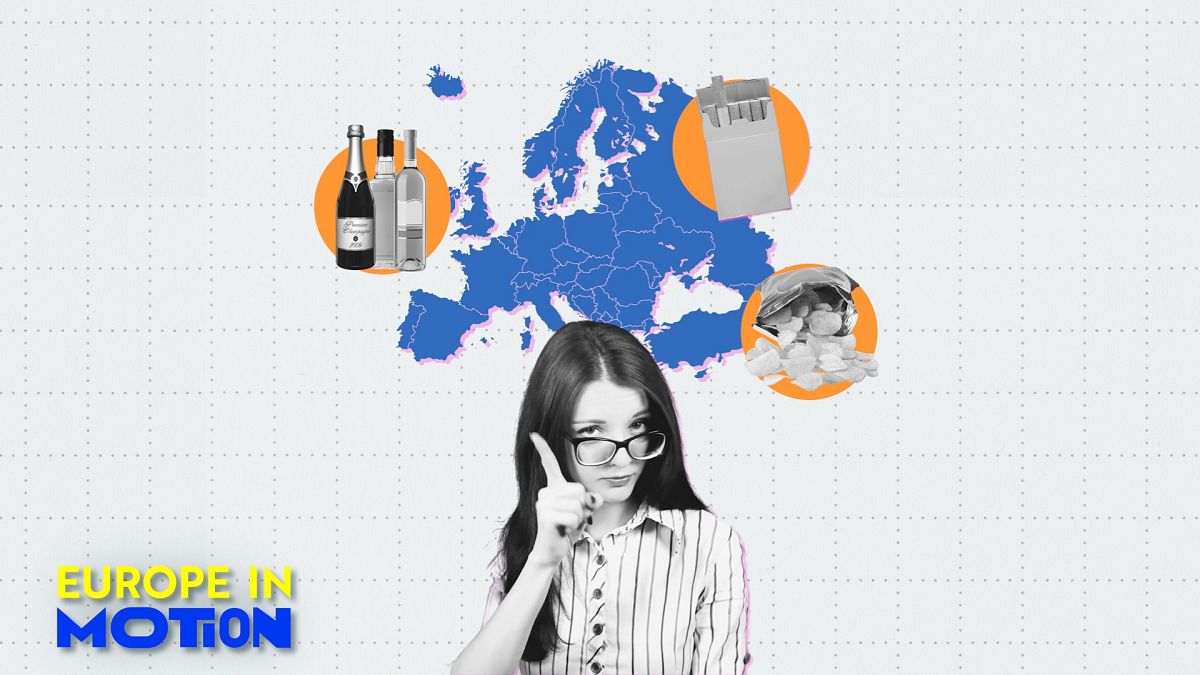Multiple studies have proven that raising taxes on alcohol and cigarettes contributes to cutting consumption and health risks. However, not everyone likes to be told what to do.
The 2025 ‘Nanny State index’ says Lithuania is the most interventionist country in the EU when it comes to cracking down on unhealthy lifestyles through levies and bans.
Lithuania on all-out war against alcohol
The Baltic nation is the only EU member state to ban alcohol sales to anyone under 20.
Its legislation also tightly regulates the hours, forbidding sales before 10.00 am or after 08.00 pm (03.00 pm on Sunday).
Marketing is also affected by alcohol-restricting rules, with a total prohibition on alcohol advertising in all forms, including imported magazines.
Like neighbouring Latvia, it has also restricted energy drinks, banning their sale to anyone under 18 since 2015.
Smoking hasn’t been exempted either from the country’s harsh rules.
On top of an all-out restriction on e-cigarette advertising and sponsorship in the media, cigarette smoking has been prohibited on all balconies and terraces of apartment buildings where at least one resident opposes smoking.
The report says “municipalities in major cities report that few people have been fined.”
Turkey enforces blanket ban on e-cigarettes
Turkey, the country that the report calls the ‘nanniest’ state of all, is the only one to have an outright e-cigarette ban.
“Turkey has gone to war on alcohol and nicotine,” says the report.
“E-cigarettes, snus and heated tobacco products are banned outright, although a form of snuff (‘enfiye’) is legal and nicotine pouches are not explicitly banned.”
“Cigarettes have to be sold in plain packaging, tobacco cannot be displayed in shops, and cigarette vending machines are prohibited,” the report explained.
Tough-on-tobacco Britain gears up for junk food crusade
The UK, which is seventh in the overall table, takes the toughest stance on tobacco, with a €411 tax per kilogram.
England already outlawed cigarette vending machines in 2011, while, in less than two years, the UK will ban everyone born in or after 2009 from ever buying tobacco. Lithuania has the highest score among EU countries.
Also, in October 2025, a ban on “less healthy” food advertising will be enforced on TV before 9pm and at any time on the internet.
Hungary slams hefty levies on unhealthy groceries
When it comes to unhealthy food and drinks, however, it’s Hungary that tops the list as the most restrictive country, as well as placing second for anti-smoking measures and third for measures discouraging use of so-called safer nicotine.
Following the introduction, in 2011, of the Public Health Product Tax – also known as the ‘Chips Tax’ – it now has the most extensive taxation on food and soft drinks, targeting products like pre-cooked pasta, sweets, sugary drinks, salty snacks and seasoning – on top of a standard VAT rate of 27%.
Some examples? An additional €2.04 each kilogram of jam, or €1.02 per kilogram or litre of seasoning and salty snacks.
“A ban on selling energy drinks to people under 18 seems likely in 2025,” the report also adds.
‘No nanny state policies in Germany’
With some of the lowest taxes on beer, spirits and cigarettes, Germany, as the report puts it, is “the best country to drink, smoke, vape and eat in the EU”.
Only three out of 16 German states have a comprehensive smoking ban in public places – Bavaria, North Rhine-Westphalia and Saarland – while the others have restrictions based on the size of the premises, the status of the establishment and whether or not food is served.
There are no particular restrictions on food and soft drinks and there is no sugar tax.
It does however impose a tax on e-cigarette fluid, which is expected to rise to €0.32 in 2026.
Also, nicotine pouches are “de facto” banned because they are listed as a food product, and food can’t contain nicotine in Germany.
With regards to food and soft drinks, authorities have somehow begun to take steps to regulate them in a healthier way.
In a “voluntary agreement” entered with the government, some companies will aim to “reformulate food products to achieve a reduction in sugar consumption of at least 10%.”

